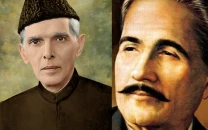Police negligence allows drug peddler to go free
Bench concludes prosecution failed to prove its case against the appellant

A drug peddler benefited from police negligence and was freed by the Lahore High Court (LHC) on Thursday due to lack of evidence.
The prosecution claimed that the operation was led by Assistant Sub-Inspector (ASI) Muhammad Afzal, however, the complaint, recovery memo, site plan, and statements of witnesses recorded under Section 161 of the Cr. P.C were by a single officer and not according to procedure.
The drug peddler was arrested for possession of 1,210 grams of hashish. Justice Tariq Saleem Sheikh headed the LHC Bahawalpur bench, which acquitted the drug dealer, Ijaz Hussain, alias Jajay Shah, by setting aside the trial court’s conviction of four years and six months.
“The facts and circumstances of the present case indicate that the same person prepared the entire file in a single sitting. It is hard to reject the appellant’s contention that it was at the police station and that no raid was ever conducted”, Justice remarked.
“It is a cardinal principle of criminal law that the burden of proof rests squarely on the prosecution, and it is obligated to prove the charge against the accused beyond a reasonable doubt. This canon is firmly grounded in the presumption of innocence, which dictates that an accused is regarded as innocent until proven guilty,” the court observed.
Having reappraised the evidence, the bench concluded that the prosecution had failed to prove its case against the appellant beyond any reasonable doubt.
While presenting the arguments, the appellate attorney, Syed Zeeshan Haider, argued that police had implicated the appellant using forged documents, and claimed no raid was ever conducted and the alleged contraband was never found in the complainant’s possession.
He cited various passages from the testimony of the prosecution witnesses to support his point. He argued that the trial court had erred in assessing the evidence, which had resulted in a serious miscarriage of justice.
The deputy prosecutor general strongly opposed the version of the appeal. He argued that the prosecution was supported by ASI Muhammad Afzal (prosecution witness-2) and Constable Muhammad Adnan (prosecution witness-3) and the forensic report.
During proceedings, the bench noted that the proceedings claimed that the ASI led the operation based on information from an informer, but nothing on record suggests that he had accompanied the police. There is also no evidence that any member of the raid knew the appellant previously. In these circumstances, the prosecution was bound to explain how he was recognised.
The court noticed that ASI Afzal, Constable Muhammad Adnan, and Investigating Officer (IO) Waqas Jamil claimed that two officials of Eagle Squad No.13 also joined the raid. Astonishingly, they were important witnesses to the occurrence and could have added to the credibility of the prosecution's case, but their statements under Section 161 CrPC were not recorded and neither were their names mentioned in any proceedings.
On one point, the bench observed that the law does not expressly forbid the complainant or raiding officer from investigating narcotics cases, though it is not appreciable. In the present case, two different officers conducted the raid and the investigation.
Muhammad Afzal (ASI) led the police team during the raid, seized the drugs, and reported the crime through a complaint. On the other hand, Waqas Jamil SI (prosecution witness-4) investigated the case. Given this situation, the ASI was responsible for preparing the recovery memo and lodging the complaint, while SI Waqas Jamil should have done all the other proceedings.
Both complainants admitted in their cross-examinations that the handwriting on the complaint, the recovery memo, the rough site plan, and the statements of witnesses recorded under Section 161 CrPC were the same.
The IO stated that the handwriting on these documents was different. On this, the counsel requested that the trial court examine these documents, and it found the handwriting to be the same.



















COMMENTS
Comments are moderated and generally will be posted if they are on-topic and not abusive.
For more information, please see our Comments FAQ